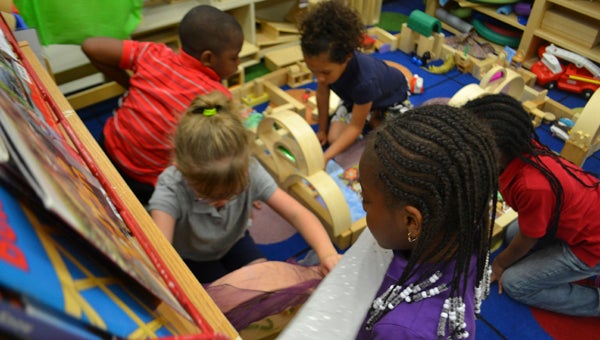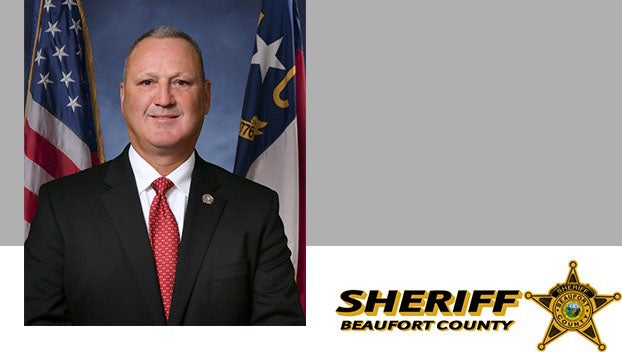Initiative to help teachers meet student needs
Published 2:13 pm Thursday, May 21, 2015

JONATHAN ROWE | DAILY NEWS
ASSESSING STUDENTS: Pictured, Eastern Elementary Kindergarten students in Katie Vidal and Laura Beth Ross’s class, participate in center-based learning, something that will be used as part of an assessment through NC Department of Public Instruction’s Office of Early Learning.
A new initiative from the North Carolina Department of Public Instruction will kick off its inaugural year for the 2015-2016 school year, aiding teachers in meeting the needs of their students.
The NC Race of the Top Early Learning Challenge Grant K-3 Formative Assessment Process is a statewide initiative that starts this fall with the new school year and is in response to legislation passed by North Carolina’s General Assembly. To meet requirements of the Race of the Top Early Learning Challenge Grant, a federal grant that funds an array of projects dedicated to improving early learning and development opportunities for the state’s young students, NCDPI’s Office of Early Learning designed the initiative, a developmentally appropriate, individualized assessment for K-3 children, said Amy Schrinzi, project lead at DPI’s Office of Early Learning.
“Nationally, there is a lot of interest in learning who our Kindergarten students are and a real interest to collect information about what our students know,” Schrinzi said.
Schrinzi said North Carolina chose to do more than just a Kindergarten assessment like other states have elected to do because the state wanted an opportunity to learn what the students know and continue to use that throughout the school year, as well as in first, second and third grades. The assessment is an authentic way of gauging what Kindergarten students know when they enter Kindergarten, as well as a continued measure of what they learn and how they develop over the year, Schrinzi said.
“As I’m teaching children and observing children, I’m learning about what they know so I can figure out where to go with them next,” Schrinzi said. “This is an opportunity to think about the whole child, paying attention to the development areas beyond math and literacy and thinking about their emotional literacy and communicating about their emotions, taking a look at some of the skills within emotional development and approaches to learning.”
The new assessment will build off daily research and aid teachers in identifying where children are in the learning process and help teachers know what direction to go next with students, Schrinzi said.
Each district across the state has a District Implementation Team, made up of teachers and principals and the state provides workshops for the teams to learn how to roll out the new initiative, how it works, how to inform teachers about it, as well as how it differs from current curriculums and how it’s the same, said Katie Vidal, a Kindergarten teacher at Eastern Elementary, who serves on Beaufort County’s District Implementation Team with Eastern Elementary Principal Melissa Dana.
Vidal said among some of the things teachers in Kindergarten will be looking at includes how students make choices, approaches to learning and implementation of center-based learning — the process of students using hands-on applications and activities to reflect what they have learned curriculum-wise.
“One thing I want to stress is it’s not about whether children can or cannot do something,” Vidal said. “It’s about what can they do and where do I take them next. That’s a real different shift in the assessment world. This is an opportunity to beef up that formative, daily assessment that drives instruction. It’s both assessment and instruction.”
Dana said families are an important piece of the assessment process because teachers can learn from parents about their children and they can use that information in the classroom to make instruction more effective. This year, the Kindergarten teachers at Eastern Elementary have already begun to implement this initiative, something that the school is proud of, Dana said.
“I’m really proud of the teachers here, who have already started to rethink the way they will teach Kindergarten next year,” Dana said. “A lot of them have rearranged their classrooms, thought about ways to incorporate choices, a lot have thought about changing to center-based learning…I’m proud of the school and the teachers for kind of diving in head first and being prepared.”
For more information about the NC Race of the Top Early Learning Challenge Grant K-3 Formative Assessment Process, visit www.ncpublicschools.org/earlylearning/k-3assessment.





